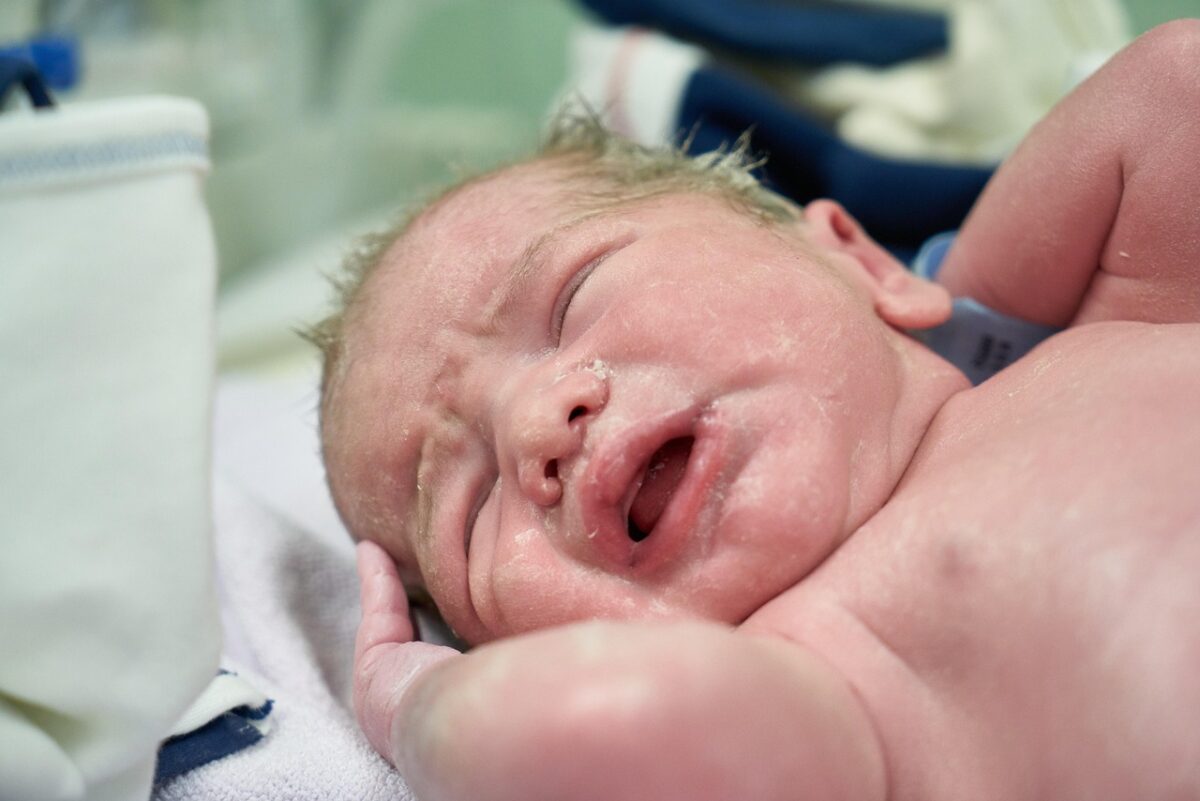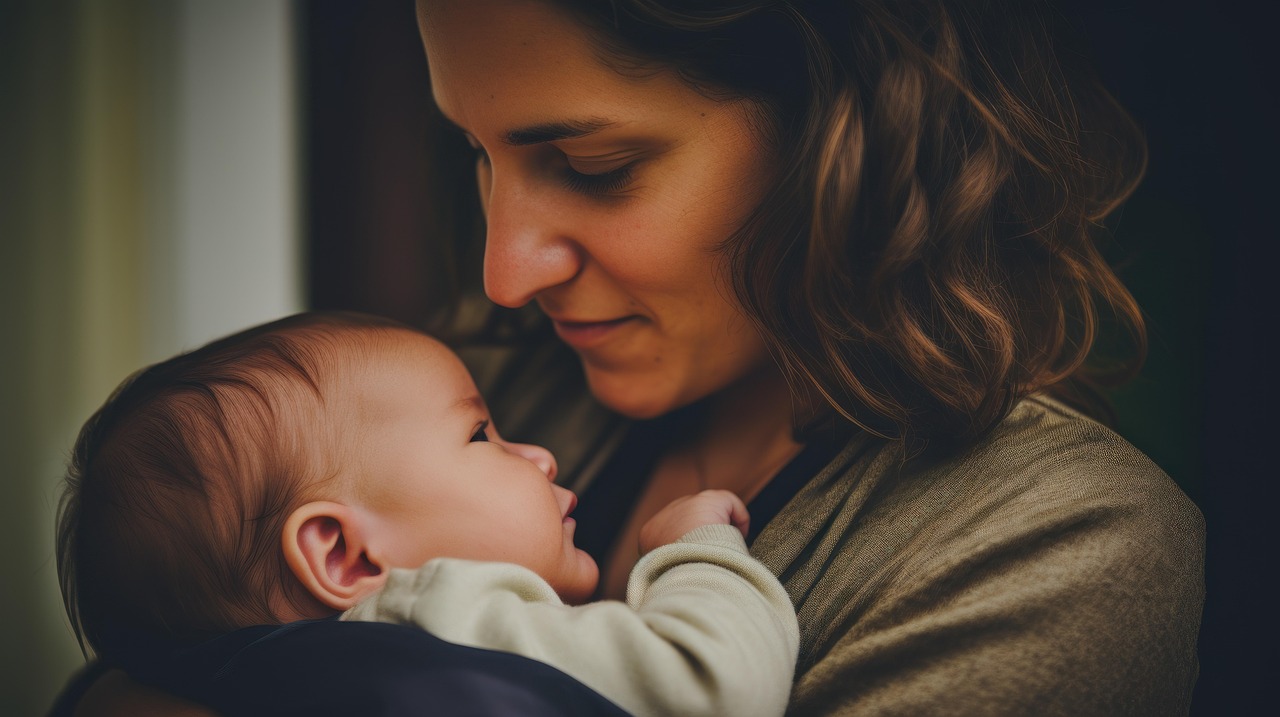Respiratory Syncytial Virus (RSV) Infection in Infants – Causes, Symptoms, and Treatment
“What is Respiratory Syncytial Virus (RSV) Infection?”
Respiratory Syncytial Virus (RSV) is a highly contagious virus
that causes respiratory infections in infants and young children.
RSV can lead to mild cold-like symptoms in healthy babies
but may cause severe complications such as bronchiolitis and pneumonia in high-risk infants.
Infants younger than 6 months and those with prematurity, congenital heart disease, or chronic lung conditions
are at higher risk for severe RSV infection.
📌 Introduction
RSV is one of the most common causes of hospitalization in infants,
especially during the winter season (October–April in most regions).
✅ Nearly all children contract RSV by the age of 2, but symptoms vary in severity.
✅ In severe cases, RSV infection can lead to respiratory failure and require ICU admission.
💡 This article will cover the causes, symptoms, diagnosis, treatment, and prevention of RSV infection in infants.
Causes and Risk Factors of Respiratory Syncytial Virus (RSV) Infection
RSV is a highly contagious virus that spreads through respiratory droplets,
infecting the lungs and airways of infants and young children.
It is a leading cause of bronchiolitis (small airway inflammation) and pneumonia in infants.
1️⃣ Main Causes of RSV Infection
✔ Direct Contact with Infected Individuals
– RSV spreads through coughing, sneezing, or touching contaminated surfaces
– The virus can survive for hours on hands, toys, and surfaces
✔ Weakened Immune System in Infants
– Immature immune response makes infants more vulnerable to severe RSV infection
✔ Seasonal Outbreaks (Winter and Early Spring)
– RSV is most active from October to April in temperate climates
✔ Premature Birth (<37 Weeks Gestation)
– Lungs are underdeveloped, making breathing difficulties more severe
✔ Underlying Medical Conditions
– Congenital heart disease, chronic lung disease, or neuromuscular disorders
– These conditions make it harder for infants to clear lung infections
✔ Exposure to Crowded or High-Risk Environments
– Daycare attendance increases exposure to RSV
– Older siblings in school can bring RSV home
✔ Lack of Breastfeeding
– Breast milk provides antibodies that help protect against severe infections
✔ Exposure to Secondhand Smoke or Air Pollution
– Damages lung function and increases RSV severity
2️⃣ Risk Factors for Severe RSV Infection
✔ Premature Infants (<37 weeks gestation)
– Higher risk of severe RSV due to immature lungs
✔ Infants <6 Months Old
– Most vulnerable age group for hospitalization
✔ Congenital Heart Disease (CHD) or Chronic Lung Disease (CLD)
– Babies with CHD or bronchopulmonary dysplasia (BPD) are at higher risk
✔ Weakened Immune System (Immunodeficiency Disorders)
– More prone to severe RSV complications
✔ Multiple Births (Twins, Triplets, etc.)
– Increased exposure to infections in crowded environments
✔ Living in High-Density Areas (Daycare, Large Families)
– Frequent exposure to RSV carriers
💡 Summary of RSV Causes & Risk Factors
✔ RSV spreads through respiratory droplets and contaminated surfaces
✔ Premature infants and babies with heart/lung conditions are at higher risk
✔ Crowded environments, lack of breastfeeding, and secondhand smoke increase RSV risk
✔ Seasonal outbreaks occur in winter and early spring
💡 Understanding these risk factors helps in early prevention and better protection for infants.

Symptoms and Complications of Respiratory Syncytial Virus (RSV) Infection
The severity of RSV symptoms varies from mild cold-like illness to severe respiratory distress.
Most healthy infants experience mild symptoms, but high-risk infants can develop serious lung infections.
1️⃣ Common Symptoms of RSV Infection
✔ Mild RSV Symptoms (Cold-Like)
– Runny nose, congestion
– Sneezing, mild cough
– Low-grade fever (<38.5°C / 101.3°F)
– Poor feeding (due to nasal congestion)
✔ Moderate RSV Symptoms (Lower Respiratory Infection Begins)
– Worsening cough and wheezing
– Rapid or labored breathing (tachypnea)
– Retractions (skin pulling between ribs while breathing)
– Irritability, decreased activity, poor appetite
✔ Severe RSV Symptoms (Respiratory Distress & Hospitalization Needed)
– Apnea (pauses in breathing, especially in premature infants)
– Cyanosis (bluish skin due to low oxygen levels)
– Severe wheezing and grunting
– Chest retractions (deep pulling of skin between ribs)
– Lethargy or unresponsiveness
2️⃣ Complications of RSV Infection
🏥 1. Bronchiolitis (Inflammation of the Small Airways)
✔ Most common RSV complication
✔ Leads to wheezing, breathing difficulty, and lung congestion
✔ May require hospitalization for oxygen therapy
🫁 2. Pneumonia (RSV-Induced Lung Infection)
✔ RSV can cause viral pneumonia, leading to severe respiratory distress
✔ Symptoms: High fever, chest pain, rapid breathing
🫀 3. Increased Risk for Asthma and Wheezing Disorders
✔ Severe RSV infections in infancy increase the risk of childhood asthma
✔ Recurrent wheezing episodes are common in RSV survivors
⚠️ 4. Respiratory Failure (Severe Cases Require ICU Care)
✔ Severe RSV can cause dangerously low oxygen levels (hypoxia)
✔ Mechanical ventilation (intubation) may be required
🍼 5. Feeding and Dehydration Issues
✔ Congestion and difficulty breathing make feeding hard for infants
✔ IV fluids may be needed for hydration
💡 Summary of RSV Symptoms & Complications
✔ Mild RSV starts with cold-like symptoms (runny nose, mild fever, cough)
✔ Severe cases lead to breathing difficulties, wheezing, and cyanosis
✔ Bronchiolitis and pneumonia are the most common complications
✔ Some infants may need ICU care and oxygen support
💡 Recognizing early warning signs helps in seeking timely medical care and preventing complications.
Diagnosis and Treatment of Respiratory Syncytial Virus (RSV) Infection
Early diagnosis of RSV is essential for proper management,
especially in high-risk infants who may require hospitalization.
Treatment focuses on symptom relief and respiratory support,
as there is no specific antiviral cure for RSV in most cases.
1️⃣ Diagnosis of RSV Infection
✔ Clinical Examination
– Doctors assess breathing patterns, lung sounds, and oxygen levels
– History of recent cold-like symptoms and exposure to RSV cases
✔ Pulse Oximetry (Oxygen Level Measurement)
– Low oxygen saturation (<92%) may indicate severe RSV
✔ Nasopharyngeal Swab (RSV PCR Test or Rapid Antigen Test)
– Confirms RSV infection in respiratory secretions
✔ Chest X-ray (For Severe Cases)
– Identifies lung congestion, pneumonia, or lung collapse (atelectasis)
✔ Blood Tests (Only in Complicated Cases)
– Blood gas analysis to check oxygen and carbon dioxide levels
– CBC (Complete Blood Count) to rule out bacterial co-infection
2️⃣ Treatment Options for RSV Infection
🏥 1. Home Care for Mild to Moderate RSV
✔ Hydration (Frequent Small Feedings or Fluids)
– Prevent dehydration due to poor feeding and congestion
✔ Nasal Suctioning and Saline Drops
– Clears mucus to improve breathing and feeding
✔ Humidified Air or Steam Therapy
– Helps loosen mucus and relieve congestion
✔ Fever and Pain Management
– Acetaminophen (Tylenol) or Ibuprofen (only if >6 months old)
🫁 2. Hospital Treatment for Severe RSV Cases
✔ Oxygen Therapy (For Low Oxygen Levels)
– Nasal cannula or oxygen mask for infants with breathing difficulties
✔ High-Flow Nasal Cannula (HFNC) or CPAP
– Provides additional breathing support for severe bronchiolitis
✔ Mechanical Ventilation (Intubation for Respiratory Failure)
– Required for infants with severe apnea, cyanosis, or extreme respiratory distress
✔ IV Fluids or Feeding Tube
– Used if baby is too weak to feed properly
✔ Ribavirin (Antiviral Therapy – Rarely Used)
– Reserved for severe RSV in immunocompromised infants
⚠️ 3. Monoclonal Antibody Treatment for High-Risk Infants
✔ Palivizumab (Synagis)
– Prevents severe RSV in high-risk infants (preterm, CHD, chronic lung disease)
– Given as monthly injections during RSV season
✔ New RSV Vaccines and Antibody Therapies
– Beyfortus (Nirsevimab) – Approved for RSV prevention in newborns
💡 Summary of RSV Diagnosis & Treatment
✔ RSV is diagnosed with clinical exams, pulse oximetry, and nasal swabs
✔ Mild cases are managed at home with fluids, nasal suctioning, and fever control
✔ Severe cases require oxygen therapy, breathing support, or hospitalization
✔ Palivizumab and Nirsevimab prevent severe RSV in high-risk infants
💡 Early detection and proper supportive care reduce RSV complications and hospitalizations.

Prevention and Conclusion for Respiratory Syncytial Virus (RSV) Infection
Since RSV spreads easily and can cause severe illness in infants,
preventive measures are essential, especially during RSV season (October–April).
While there is no universal vaccine for RSV, certain strategies can reduce infection risk.
1️⃣ How to Prevent RSV Infection
✔ Frequent Handwashing and Hygiene Measures
– Wash hands thoroughly before handling infants
– Disinfect toys, surfaces, and baby equipment
✔ Avoiding Crowded Places During RSV Season
– Limit visits to daycare, malls, or public areas in winter months
– Keep infants away from sick individuals
✔ Breastfeeding for Immune Support
– Provides protective antibodies that reduce RSV severity
✔ No Smoking or Secondhand Smoke Exposure
– Smoke damages infant lung function and increases RSV severity
✔ Palivizumab (Synagis) – Monthly RSV Prevention Shots for High-Risk Infants
– Recommended for preterm infants (<35 weeks), congenital heart disease (CHD), or chronic lung disease (CLD)
✔ Beyfortus (Nirsevimab) – New RSV Antibody Therapy for Newborns
– Provides RSV protection with a single dose for eligible infants
2️⃣ Long-Term Impact and Follow-Up for RSV Survivors
✔ Monitor for Post-RSV Wheezing and Asthma Risk
– Severe RSV infections increase the risk of childhood asthma
✔ Follow-Up for Infants with RSV-Related Hospitalization
– Some may experience prolonged respiratory issues or feeding difficulties
✔ Early Intervention for Developmental Delays (If Severe RSV Occurred)
– Premature infants with severe RSV may require neurodevelopmental monitoring
🔥 Conclusion & Key Takeaways
RSV is a common but potentially serious infection in infants,
especially for preterm babies and those with underlying health conditions.
🎯 Key Prevention & Management Strategies
✔ Handwashing, hygiene, and avoiding sick contacts reduce RSV risk
✔ Breastfeeding and avoiding smoke exposure help protect the lungs
✔ Palivizumab and Beyfortus provide antibody protection for high-risk infants
✔ Early detection and oxygen support improve RSV outcomes
💡 With proper prevention and medical care, most infants recover fully from RSV without long-term complications. 🚀




